Being a fashion model isn’t just about walking down a runway or smiling for a camera. It’s a high-pressure job that demands physical endurance, mental resilience, and constant self-presentation. For years, the industry has been criticized for promoting unhealthy body standards. But times are changing-and so are the expectations. Today, more agencies, designers, and brands are recognizing that a model’s health isn’t optional. It’s essential. So how do you stay healthy while meeting the demands of the job?
Physical Health: Beyond the Scale
Many aspiring models think the key to success is being as thin as possible. But the reality is more complex. The average runway model today is still slender, but the industry has moved away from extreme underweight standards. In 2023, France passed a law requiring models to provide a medical certificate confirming a healthy BMI. Spain, Italy, and the UK have followed with similar guidelines. Even major brands like Gucci and Chanel now openly hire models with diverse body types.
But health isn’t just about weight. It’s about energy, strength, and recovery. Models often work 12- to 16-hour days, travel across time zones, and skip meals due to tight schedules. That’s not sustainable. A model who’s constantly fatigued won’t have the stamina to hold poses, walk confidently, or recover from long shoots.
What works better than restrictive diets? Consistent nutrition. Eating balanced meals with protein, healthy fats, and complex carbs keeps energy levels steady. Many professional models now work with nutritionists who tailor meal plans around their shoot schedules. For example, if you have a morning shoot in Milan, you’ll need a protein-rich breakfast, not just a cup of black coffee. Hydration matters too-dehydration makes skin look dull and eyes look tired, which is the opposite of what photographers want.
Exercise isn’t about losing weight. It’s about staying strong. Pilates, yoga, and light resistance training help with posture, core stability, and injury prevention. Walks between castings, stretching before fittings, even dancing in your hotel room-movement keeps your body ready for the job.
Mental Health: The Silent Struggle
Behind every flawless editorial spread is a person dealing with rejection, comparison, and isolation. Models often hear phrases like “you’re not right for this look” or “we need someone taller.” Those comments stick. A 2024 study by the Model Alliance found that 68% of models under 25 reported symptoms of anxiety or depression linked to their work environment.
It’s not just about body image. It’s about identity. When your value is tied to how you look, it’s easy to lose sight of who you are outside the camera. Many models feel pressure to stay “on” 24/7-posting curated photos on Instagram, maintaining a certain aesthetic, never showing fatigue or emotion.
Healthy models set boundaries. They say no to jobs that make them feel uncomfortable. They take days off. They talk to therapists who specialize in creative industries. Some agencies now offer free counseling sessions as part of their contracts. If your agency doesn’t, find your own support. Apps like Headspace and Calm are used by many models for daily mindfulness. Journaling helps too-writing down what you’re feeling, not just what you’re wearing.
And here’s something most people don’t talk about: social media isn’t real life. Scrolling through feeds of “perfect” models can make you feel broken. But those images are edited, lit, posed, and often shot over dozens of takes. Your worth isn’t measured by likes or comments. It’s measured by how you feel when you wake up.
Nutrition Myths That Hurt Models
There are a lot of bad habits passed down as “industry rules.” Let’s clear up the biggest ones.
- “Eat only once a day.” That’s not discipline-it’s starvation. Your body needs fuel to function. Skipping meals leads to muscle loss, slow metabolism, and brain fog. You’ll look tired on camera, not radiant.
- “Drink only water and green tea.” Water is essential, but so are electrolytes. Dehydration causes bloating and dry skin. If you’re sweating on set or flying internationally, you need sodium and potassium too.
- “Avoid carbs.” Carbs aren’t the enemy. They’re your brain’s main fuel. Whole grains, sweet potatoes, and legumes help with focus and mood. Cutting them out can lead to irritability and poor sleep.
- “You can’t have sugar.” Occasional treats don’t ruin your health. Denying yourself leads to bingeing later. Balance, not restriction, is the goal.
Instead of following rigid rules, listen to your body. Are you hungry? Eat. Are you tired? Rest. Are you stressed? Move or talk it out. Your body knows what it needs-you just have to stop ignoring it.

Recovery Is Part of the Job
Most models think recovery means sleeping after a long day. But true recovery is intentional. It’s not passive.
After a shoot, your body needs more than just rest. Foam rolling helps with muscle tightness from standing for hours. Cold showers reduce inflammation. Even 10 minutes of deep breathing before bed lowers cortisol levels. Many models now schedule “recovery days” between jobs-no meetings, no photoshoots, just quiet time.
Also, sleep isn’t a luxury. It’s a requirement. The body repairs itself during deep sleep. Without enough of it, your skin ages faster, your immune system weakens, and your mood tanks. Aim for 7 to 8 hours. If you’re on a flight across the Atlantic, bring an eye mask and earplugs. Use melatonin if needed-it’s safe and commonly used by professionals.
And don’t underestimate the power of touch. Massage therapy, acupuncture, or even a long hug from a friend can reset your nervous system. In a world that treats you like a mannequin, human connection matters.
What Agencies Are Doing Right (and Wrong)
Not all agencies are the same. Some still push unhealthy standards. Others are leading change.
Top agencies like IMG, Elite, and Models 1 now have health policies. They require medical check-ups before signing new talent. They ban underweight models from runway shows. Some even provide access to nutritionists and mental health professionals at no cost.
But not every agency does this. If you’re starting out, ask questions before signing a contract:
- Do you have a health policy?
- Can I speak with a nutritionist or counselor through the agency?
- Have you ever turned down a job because the client’s requirements were unhealthy?
If the answer is no, consider walking away. Your health is your most valuable asset. No contract is worth your wellbeing.
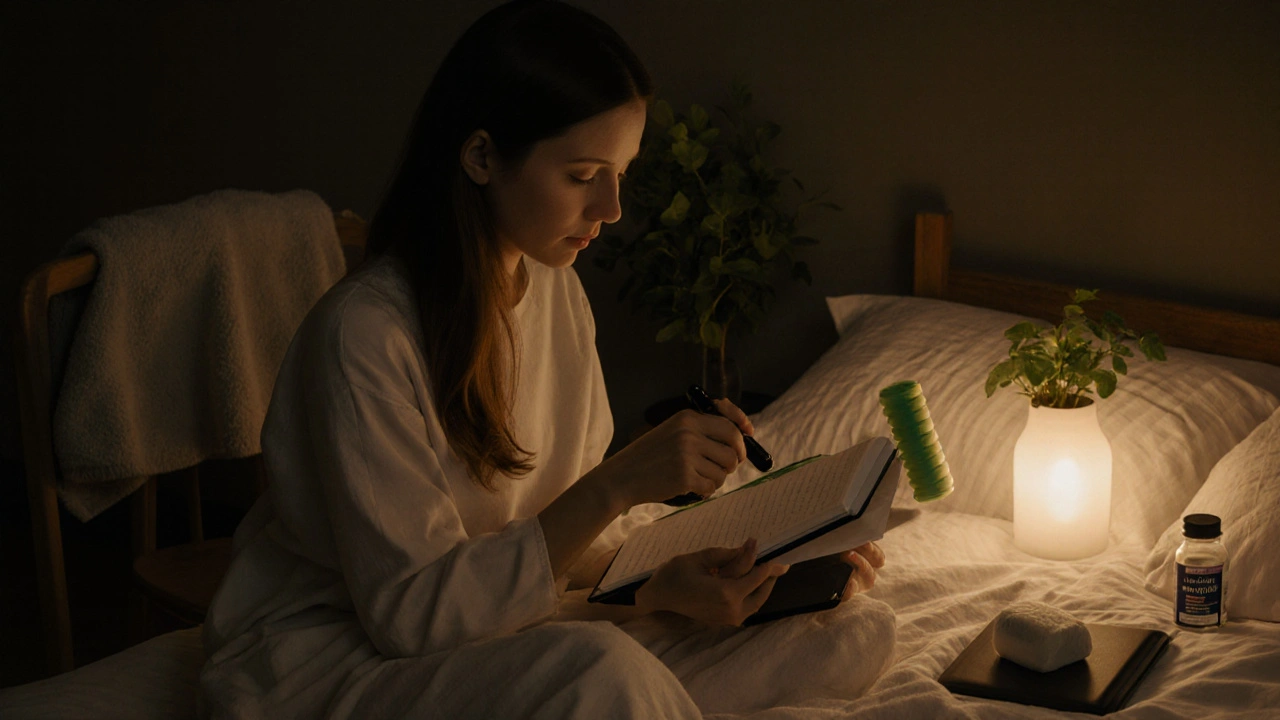
What You Can Do Today
You don’t have to wait for the industry to change. Start with small, sustainable steps:
- Drink a glass of water as soon as you wake up.
- Take one meal a day without checking your phone.
- Write down three things you like about yourself outside of your appearance.
- Say no to a job that makes you feel uncomfortable.
- Find one person you can talk to honestly-friend, therapist, mentor.
These aren’t grand gestures. They’re daily acts of self-respect. And over time, they build a foundation that no runway, camera, or critic can take away.
It’s Not About Being Perfect
The most beautiful models aren’t the ones who look the most “perfect.” They’re the ones who show up-tired, real, and still smiling. They know their worth isn’t tied to a number on a scale or a comment from a casting director.
Health isn’t a trend. It’s your responsibility. And when you take care of yourself, you don’t just survive the industry-you thrive in it. You bring energy to shoots. You inspire younger models. You prove that beauty and wellbeing aren’t opposites. They go hand in hand.
The next time someone tells you to lose weight, eat less, or push through exhaustion, remember this: your health is your power. And no job is worth giving it up.
Is it necessary for fashion models to be extremely thin to succeed?
No, it’s not necessary-and it’s becoming less common. While the industry historically favored very thin body types, regulations in countries like France and Spain now require models to have a healthy BMI. Major brands and agencies are increasingly hiring diverse body types, including curvy, tall, and athletic models. Success today is about presence, confidence, and professionalism-not just measurements.
How can models deal with rejection without harming their mental health?
Rejection is part of the job, but it doesn’t define your value. Many models keep a journal to separate feedback from self-worth. Working with a therapist who understands the modeling industry helps process emotions. Setting boundaries around social media use and surrounding yourself with supportive people also reduces the emotional toll. Remember: casting directors choose based on a client’s vision, not your worth as a person.
What should a model eat on a long shoot day?
On long shoot days, models should eat balanced meals every 3-4 hours. A good plan includes: a protein-rich breakfast (eggs, Greek yogurt), a mid-morning snack (nuts, fruit), a lunch with lean protein and complex carbs (chicken, quinoa, veggies), and a light dinner. Keep snacks like trail mix, protein bars, and water on hand. Avoid sugary energy drinks-they cause crashes that affect performance.
Are mental health resources available to models?
Yes, increasingly so. Top agencies like IMG, Elite, and Models 1 now offer free or subsidized access to therapists and nutritionists. Organizations like the Model Alliance also provide confidential counseling. If your agency doesn’t offer support, reach out to independent professionals who specialize in creative industries. Your mental health is as important as your portfolio.
How can new models avoid falling into unhealthy habits early in their career?
Start by choosing an agency with clear health policies. Avoid anyone who pressures you to lose weight quickly or skips meals. Build a support system-friends, family, or mentors outside the industry. Educate yourself on nutrition and mental health. Follow models who speak openly about wellbeing. And remember: your career should enhance your life, not drain it. If something feels wrong, trust your gut and walk away.
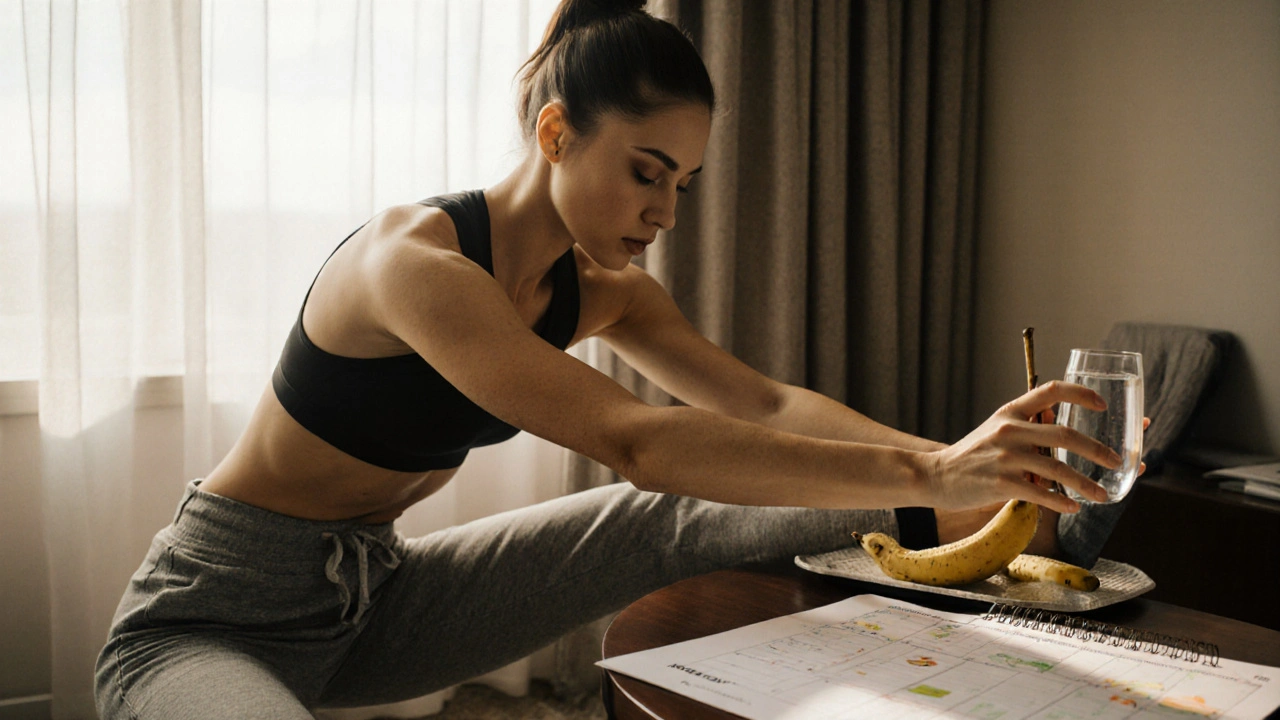
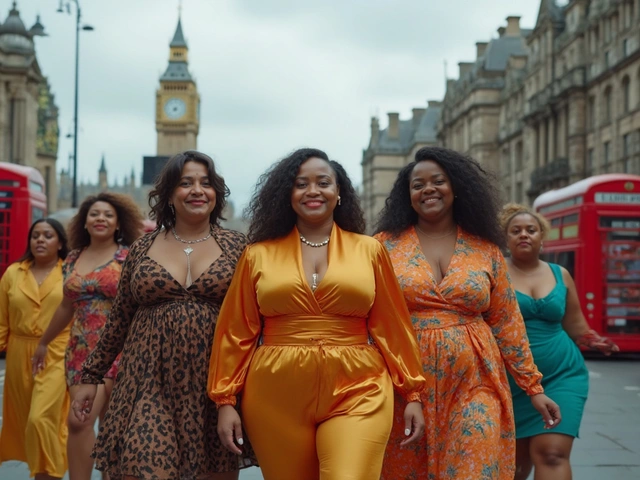
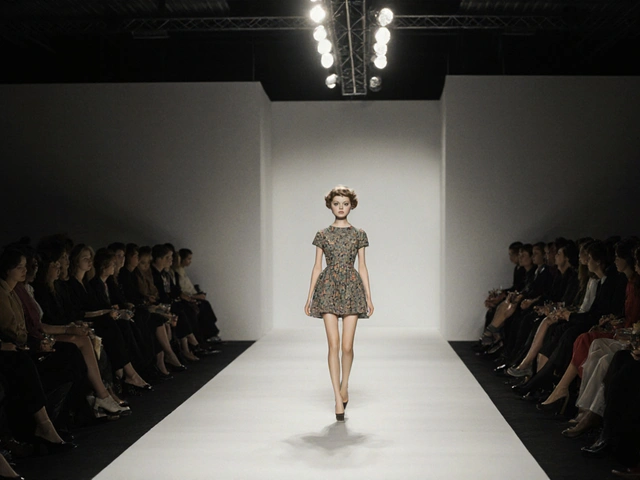
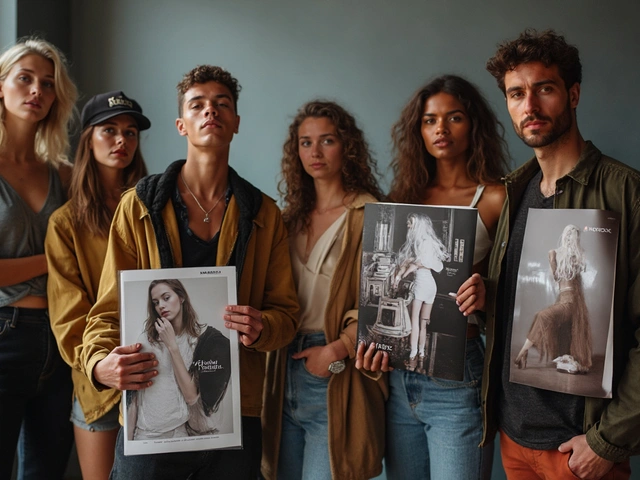
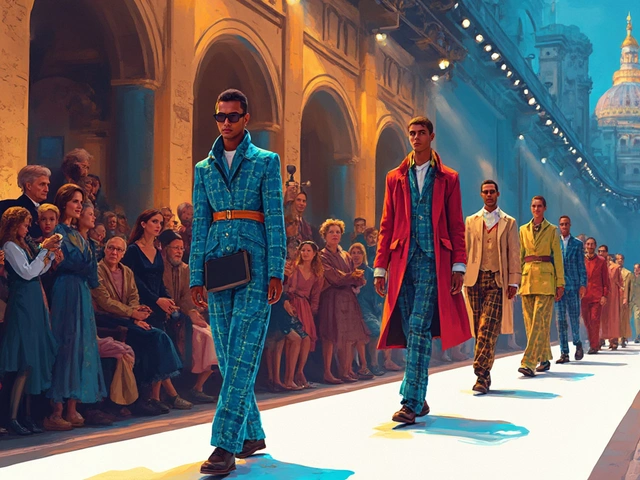

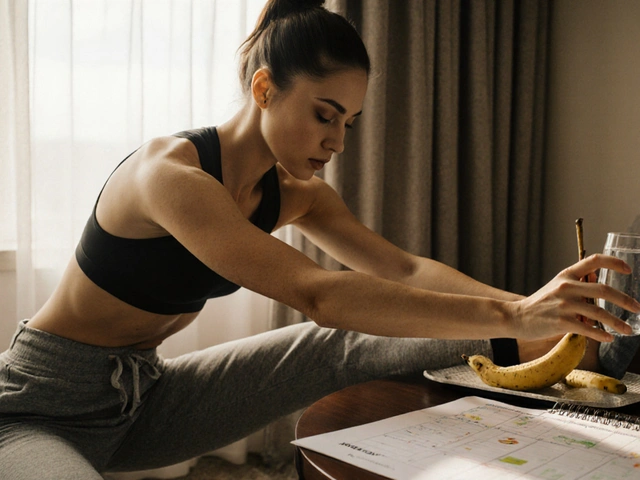
November 4, 2025 AT 02:45
Andre Möller
Been modeling for 5 years and honestly, the biggest game-changer was just learning to eat like a human again. No more starving myself for castings. I started meal prepping protein bowls and carrying snacks everywhere. My skin cleared up, my energy didn’t crash by 3pm, and I actually started booking more jobs. Turns out, looking healthy beats looking skeletal every time.
November 4, 2025 AT 09:35
Eddie Moss
bro i used to drink only water and green tea like its some kind of holy ritual lmao. then i started getting dizzy on set and my hair started falling out. now i eat a damn burrito before a shoot and life is better. carbs are not the devil. also stop telling girls to skip meals like its a flex.
November 6, 2025 AT 03:46
Natasha Malundu
People still act like this is news? Like the industry just woke up? My aunt was a model in the 90s and she was hospitalized for anorexia. They called it ‘dedication.’ Now they call it ‘health policy.’ Same thing. They just stopped pretending they didn’t kill people slowly. And don’t get me started on therapists being a ‘perk’-like that fixes the system. It doesn’t. It just makes them look good on paper.
November 7, 2025 AT 14:51
Tyler Crimp
Love this post. Seriously. I work in casting and I’ve seen the shift firsthand. Agencies used to call us and say ‘we need her thinner.’ Now they say ‘can she carry a pose for 8 hours? Is she hydrated? Does she have a support system?’ It’s slow, but it’s real. The models who are thriving now aren’t the skinniest-they’re the ones who show up grounded, rested, and real. That’s the new standard.
November 8, 2025 AT 22:23
Madison Horst
OMG yes please. I’m a new model and I just got told by some agency to ‘lose 5 lbs before next week’ and I was like… nope. I’m 5’9”, 128 lbs, and I eat like a normal person. I started following this one nutritionist on ig who’s a former model and she said ‘if you’re hungry, eat. If you’re tired, rest. If you’re sad, cry.’ and it changed everything. Also, stop saying ‘you’re not right for this look’ like its personal. It’s just the client’s vibe. Not your worth. I’m keeping a journal now too. Writing down ‘i like my laugh’ and ‘my legs carry me everywhere’ helps. Small things. But they matter.
November 9, 2025 AT 05:52
Frank Naessens
Agree with the carb thing. People think ‘no carbs’ = model body. Nah. I used to eat nothing but protein shakes and then I’d pass out on set. Now I eat sweet potatoes and oatmeal. My skin glows, my hair doesn’t break, and I sleep like a baby. Also, if your agency doesn’t offer mental health support, run. That’s not a red flag, that’s a whole damn fire alarm.
November 9, 2025 AT 09:56
Patricia Estera Esquejo
THIS. I’m done pretending this industry is glamorous. It’s a machine that eats girls alive and then spits them out and calls it ‘inspiration.’ They give you a therapist like it’s a free latté and think that fixes everything. It doesn’t. What fixes it is stopping the demand for broken bodies. Stop hiring 14-year-olds. Stop editing photos to make hips disappear. Stop saying ‘you’re not right for this look’ when what you really mean is ‘you’re not thin enough.’ The system is the problem. Not the models. And until that changes, all the journaling and yoga in the world won’t heal what’s been broken.